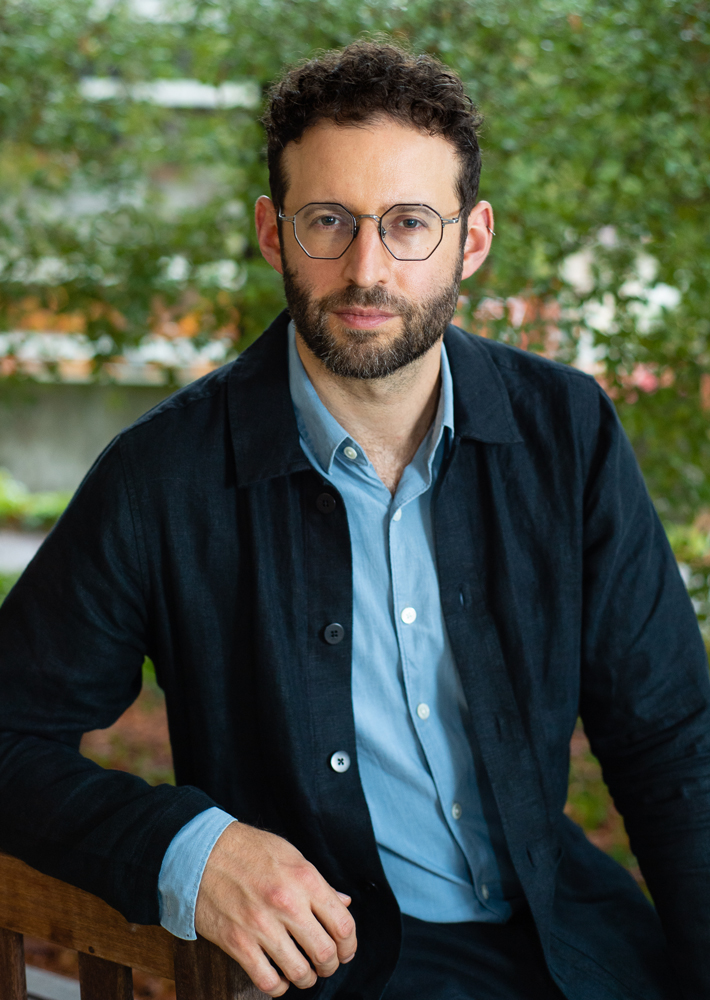NURTURING A RESILIENT EARTH
Informing effective political action
By: Liz Do & Alison Rutka
24 Oct, 2023
The effects of climate change can be felt globally at an alarming rate. CIFAR is at the forefront of addressing it. This special series, Nurturing a Resilient Earth, takes a closer look at how CIFAR’s community — across borders, roles and disciplines — is making a meaningful impact to bring about powerful change.
In this installment, we take a look at the politics of climate change — and what CIFAR researcher Daniel Aldana Cohen is doing to address the existing bottlenecks in establishing effective climate change policies worldwide.
Want to learn more about their research?
Watch: CIFAR Talks: Nurturing a Resilient Earth featuring researchers from the series.

Photo courtesy of the researcher
While CIFAR researchers are working to address climate change in different areas, from mitigating emissions, to modelling its effects on food scarcity to leveraging AI to accelerate discoveries — none of this work is applicable and scalable unless it aligns with policies worldwide.
That’s where research by CIFAR Azrieli Global Scholar, Daniel Aldana Cohen, comes in. His work, as part of the Innovation, Equity, & The Future of Prosperity program, takes a close look at policy incentives, bottlenecks and hurdles that impede the adoption of climate action, examining social, political and economic factors at play in successful climate policies.
From his globe-spanning analysis of countries from Brazil, to South Africa, to the United States, a clear pattern emerges. He finds that cities demonstrating high levels of unrest, state violence, and economic inequality simultaneously show clear patterns of environmental disparity, a phenomenon Cohen terms 'eco-apartheid.’ On the contrary, affluent communities enjoy the greatest benefit of environmental improvements or preservation.
“My research consistently finds that the most effective climate policies are ones that are also equitable,” shares Cohen. “I’m working to address the practical question: is it actually possible to write significant environmental policy without addressing inequality? And so far, I'm not sure that it is.”
From his research, the best way to do this, suggests Cohen, is through coalition building. In practice, Cohen has seen that the most successful climate policies include a strong role for public planning and regulation to ensure equity. He cites New York’s 2019 Green New Deal as an example.
“The city’s Green New Deal legislation was the most far-sighted package of urban planning policies ever passed in the United States, with a focus on decarbonizing buildings. Notably, it passed only with the support of housing movements, largely led by women of colour, who joined up with environmentalists on this very progressive urban climate policy,” says Cohen. “Past policies, that were proposed with much less equity, were not able to pass.”
Ultimately, turning challenges into climate action will require a cross-section of stakeholders. Cohen hopes for a closer integration in climate research between natural sciences, engineering, the social sciences, and technical research, to approach the issues from as many angles as possible. It’s here that he believes CIFAR has an enormous opportunity to lead on the world stage, contributing to countering climate change.
“CIFAR has the opportunity to do even more work on climate where it uses this convening power to bring researchers across disciplines, and in particular, across the social sciences to explore the issues from different angles,” says Cohen, who hopes his work will continue to inform both policy and research agendas.
“How do we change the built environment, the physical infrastructure on this planet, to deliver more equity, and to stabilize the climate? I think CIFAR has enormous possibilities to explore that. I've been talking to various people at CIFAR, not just in my program, and there are all these tantalizing connections. There's an opportunity to use creative investments in research to bring us together for more time, and then to really kick off projects.”
How does CIFAR help you do impactful work to address climate change?
“CIFAR has helped introduce me to thinkers beyond my discipline and existing networks, which is especially important for someone doing research on climate change, as the expertise is scattered across fields, all around the world. Fundamentally, climate is the kind of sprawling problem that traditional university structures have failed to take on. CIFAR's model, which is built on empowering researchers to innovate outside traditional silos, has been a huge help for me.”